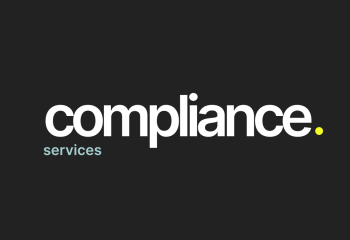[LEGAL UPDATE] TRANSITIONING TAX IDENTIFICATION NUMBERS TO PERSONAL IDENTIFICATION NUMBERS FROM JULY 1, 2025: ROADMAP AND PRACTICAL NOTES
Views: 1014
(7).png)
From July 1, 2025, the Tax Authority in Vietnam will implement an automated synchronization process, ceasing the issuance of separate tax identification numbers (TIN) and using personal identification numbers (PIN) to replace TINs for individuals, households, and household businesses. As of now, over 65 million TINs have been standardized, marking a significant reform to align tax management with the national population database, reduce duplication and errors, and simplify tax procedures. This article aims to analyze the significance, implementation approach, and key considerations for individuals, household businesses, and enterprises to proactively prepare for this change.
I. Legal Basis and Objectives of Replacing TINs with PINs
Under Clause 7, Article 35 of the Law on Tax Administration No. 38/2019/QH14 and Article 7 of Circular 86/2024/TT-BTC, from July 1, 2025, Vietnam will officially use personal identification numbers in place of tax identification numbers for households, household businesses, individual businesses, and individuals with tax obligations.
Using PINs instead of TINs aims to establish a single, lifelong identifier for each individual, eliminating the issues of duplicate, incorrect, or multiple TINs for the same person that have historically arisen due to changes in personal documents, relocation, or errors during tax registration. This change also enables the tax sector to effectively leverage the national population database, creating a foundation for transparent and efficient tax management while reducing administrative procedures for citizens and businesses.
II. Implementation Method and Practical Application
The use of PINs in place of TINs from July 1, 2025, will be carried out through an automated synchronization mechanism between the national population database and the electronic tax management system. The tax authority will not require individuals to carry out conversion procedures if their personal information already matches the database, minimizing procedures and saving time and compliance costs for taxpayers.
-
For Individuals with Existing TINs
The Tax Department will automatically review and cross-check data to convert existing TINs to PINs if the individual’s information is complete and accurate. In cases where discrepancies are found (such as incorrect name, date of birth, or mismatched ID numbers), the TIN will be placed in a “temporarily suspended pending identity information update” status. This may cause delays in fulfilling financial obligations, potentially resulting in late payment interest or difficulties in registering dependents for family deduction purposes. To mitigate these risks, taxpayers should proactively update their information with the tax authority as guided under Article 25 of Circular 86/2024/TT-BTC to continue using their PIN for tax transactions.
-
For Households, Household Businesses, and Individual Businesses
All households, household businesses, and individual businesses will use the PIN of the representative individual as the sole TIN from July 1, 2025. Dependent business locations that previously had separate TINs will no longer be issued new TINs but will use the household representative’s PIN for tax declarations, payments, and other tax obligations. This facilitates centralized tax management, reduces multiple TINs for the same individual, and supports easy and accurate tracking of tax obligations across multiple business locations.
In practice, many individuals have been issued multiple TINs in the past. To ensure unified tax data, individuals should proactively update their personal identification number for all existing TINs. After receiving the updated information, the tax authority will integrate and consolidate the TINs into a single PIN, synchronizing all historical tax declarations, payments, refunds, and withholding data under this identifier. From July 1, 2025, taxpayers will only need to use their PIN for all tax-related transactions and procedures.
III. Management of Invoices, Vouchers, and Legal Continuity
According to guidance, invoices, vouchers, and receipts issued under the old TINs will remain legally valid after July 1, 2025. Taxpayers do not need to revoke or adjust previously issued invoices upon transitioning to using PINs. Tax declarations, withholding, refunds, and other tax transactions will be conducted based on the PIN, ensuring continuity and transparency in fulfilling tax obligations.
During implementation, the Tax Department has coordinated with the Ministry of Public Security and local authorities to cleanse and cross-check data between the national population database and the tax management database, ensuring that the transition is carried out consistently while minimizing potential errors. Additionally, the electronic tax filing system, eTax platform, and eTax Mobile application have been upgraded to support the checking of TIN status and to receive requests for identity information updates from taxpayers when necessary.
The implementation of using personal identification numbers in place of tax identification numbers from July 1, 2025, is seen as a crucial step in tax administration reform in Vietnam. It enables data synchronization, reduces procedures, enhances the efficiency of tax management, and creates convenience for taxpayers in fulfilling their obligations, moving towards a modern, transparent tax administration system connected with national data platforms.
How ALTAS Can Assist You:
ALTAS LAW is uniquely positioned to assist your business in navigating these complex administrative reforms. We offer a comprehensive suite of legal and business services designed to provide seamless support during this transition period:
• Accounting and Tax Services: We also offer accounting and tax services to help your business manage the financial implications, including tax planning, tax settlement, tax auditing and tax refund.
• Licensing & Regulatory Compliance: We will meticulously review your existing licenses and permits, advise on necessary amendments or renewals, and guide you through the process of obtaining any new approvals. Our team will also ensure your compliance with all relevant regulatory changes.
Please feel free to reach us via email contact@altas.vn to discuss your specific concerns and explore how we can navigate these reforms successfully.
---
Prepared By:
Partner, Managing Director- Ms. Nguyen Nhac Thien An & Legal Senior Assistant Dang Thi Ngoc Lan
Date: 17/7/2025














(7).png)















